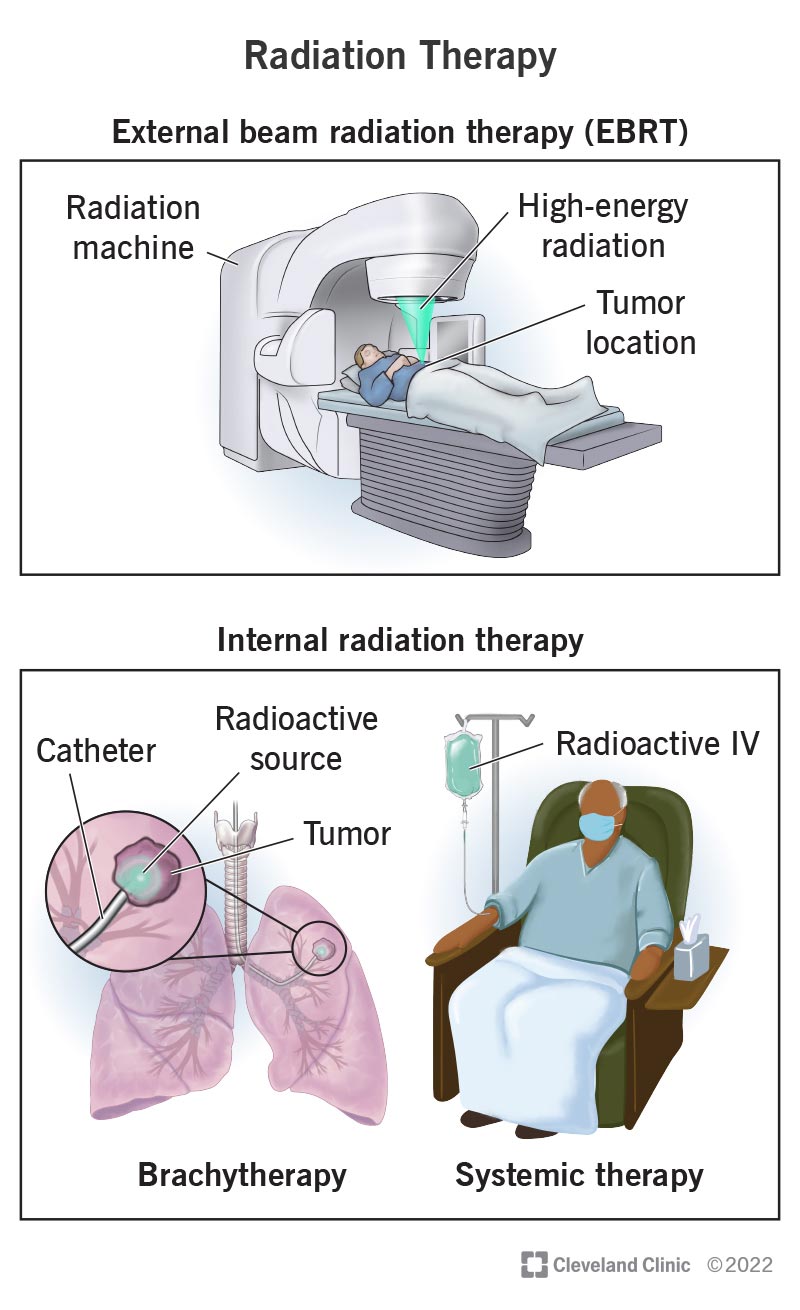The Basic Principles Of Arogyajivan Medical Tourism For Oncology
The Basic Principles Of Arogyajivan Medical Tourism For Oncology
Blog Article
The Best Strategy To Use For Arogyajivan Medical Tourism For Oncology
Table of ContentsSee This Report about Arogyajivan Medical Tourism For OncologyArogyajivan Medical Tourism For Oncology - The FactsArogyajivan Medical Tourism For Oncology Can Be Fun For AnyoneIndicators on Arogyajivan Medical Tourism For Oncology You Need To KnowThe Buzz on Arogyajivan Medical Tourism For OncologyThe Facts About Arogyajivan Medical Tourism For Oncology UncoveredArogyajivan Medical Tourism For Oncology Things To Know Before You Get This
If you have cancer cells, your health care service provider will certainly recommend one or more ways to treat the condition. Here is a review of the different treatments for cancer and just how they work.Cancer cells expand and divide faster than regular cells in the body. Because radiation is most dangerous to promptly expanding cells, radiation therapy damages cancer cells extra than typical cells. It makes use of compounds made by the body or in a lab to aid the immune system work harder or in a more targeted way to deal with cancer cells.
Some have toxins or radioactive compounds connected to them. It utilizes surgical treatment, or medicines to quit or block the body's all-natural hormonal agents. This aids reduce the development of cancer cells.
The medicines are provided by injection or as tablets. Hyperthermia usages warmth to damage and kill cancer cells without hurting typical cells. It might be utilized for: A tiny location of cells, such as a tumorParts of the body, such as a body organ or limbThe entire body The warmth is provided from a maker outside the body or with a needle or probe placed in the tumor.Laser treatment uses a very slim, focused beam of light to damage cancer cells. Thin fibers at the end of television guide the light at the cancer cells. Lasers are also made use of on the skin. Lasers are most frequently made use of with other kinds of cancer cells therapy such as radiation and chemotherapy. In photodynamic therapy, a person gets a shot of a medication that is sensitive to an unique sort of light.
Arogyajivan Medical Tourism For Oncology Can Be Fun For Anyone
An oncologist is a cancer cells doctor. These doctor concentrate on oncology the branch of medication that focuses on diagnosing, staging and dealing with cancer. AdvertisementCleveland Facility is a non-profit academic clinical facility. Marketing on our site assists support our mission. We do not back non-Cleveland Center product and services. A visit to an oncologist offers you a possibility to speak with a specialist that understands what you're undergoing.
They're all set to help, and they'll stroll with you every step of the method. An oncologist gets entailed if you have signs and symptoms that may be cancer.
The Ultimate Guide To Arogyajivan Medical Tourism For Oncology
The sooner you obtain a medical diagnosis, the much better. Numerous cancers cells are extra treatable in the very early stages. Cancer is a complex condition. Individuals with cancer often need several oncologists on their medical care team. This multidisciplinary strategy permits each expert to focus on a various area of your therapy with a typical goal of collaborative, compassionate care visit the site - ArogyaJivan Medical Tourism for Oncology.
A lot of medical oncologists also focus on hematology (the diagnosis and therapy of blood problems and blood cancers cells). These doctor use radiation therapy to treat cancer. Radiation can diminish lumps before surgical procedure or eliminate staying cancer cells after surgical procedure. You may have radiation as a stand-alone therapy or in mix with other therapies.
Get This Report on Arogyajivan Medical Tourism For Oncology
Do I have cancer cells? Exactly how long have I had it? What will my life appear like currently? If these are the inquiries competing via your mind, you're not alone. Your oncologist is below to help you browse these feelings. During your very first see, your oncologist will: Ask you to explain your symptoms in detailDo a physical examReview your clinical records, consisting of family members history and any type of previous or current wellness conditionsRun any essential tests (like imaging examinations or lab work) to get more information regarding your symptomsDetermine whether you need a go biopsyOnce your oncologist gathers the details they require, they'll: Review the results of your testsSend their searchings for to the medical care service provider who referred youTell you whether you have cancer cells and if so, what kindTalk to you about different therapy optionsListen to your concerns and anxietiesGive you sources that can offer assistance and additional informationYour initially oncology visit may occupy to three hours.
Oncology is the research study of cancer. Professionals trained in oncology give treatment for people that are at danger for cancer, being dealt with for cancer, and living with cancer after therapy.

The Only Guide to Arogyajivan Medical Tourism For Oncology
Some types of cancer cells happen most commonly in these younger age groups. When these kinds of cancer cells periodically occur in grownups, those grown-up patients may choose to work with a pediatric oncologist.

Occasionally when cancer is thought but not diagnosed, an oncologist could additionally be entailed. Lots of individuals will certainly proceed seeing their oncologist for follow-up consultations to examine for signs of cancer coming back and to manage any side impacts from treatment.
Some Known Factual Statements About Arogyajivan Medical Tourism For Oncology
If you have a cancer cells diagnosis and are evaluating your treatment choices, consider taking part in a professional test. Although they may appear daunting in the beginning, professional trials can be exceptionally valuable regardless of what kind or stage of cancer you have. Benjamin Levy, M.D., medical supervisor of the Johns Hopkins Kimmel Cancer Cells Center at Sibley Memorial Health center and a lung cancer cells researcher, clarifies some of the factors to join a professional trial.
Report this page